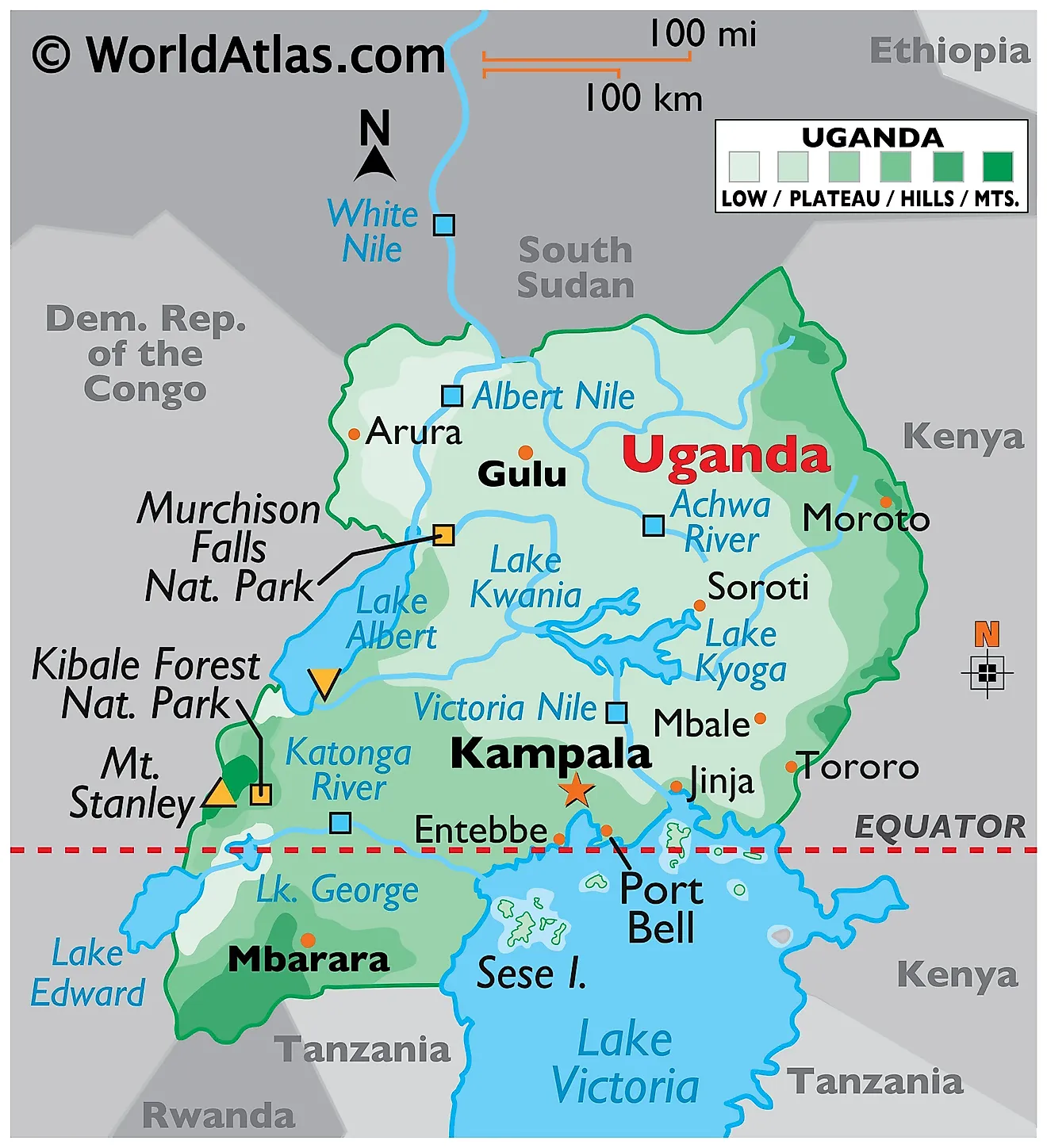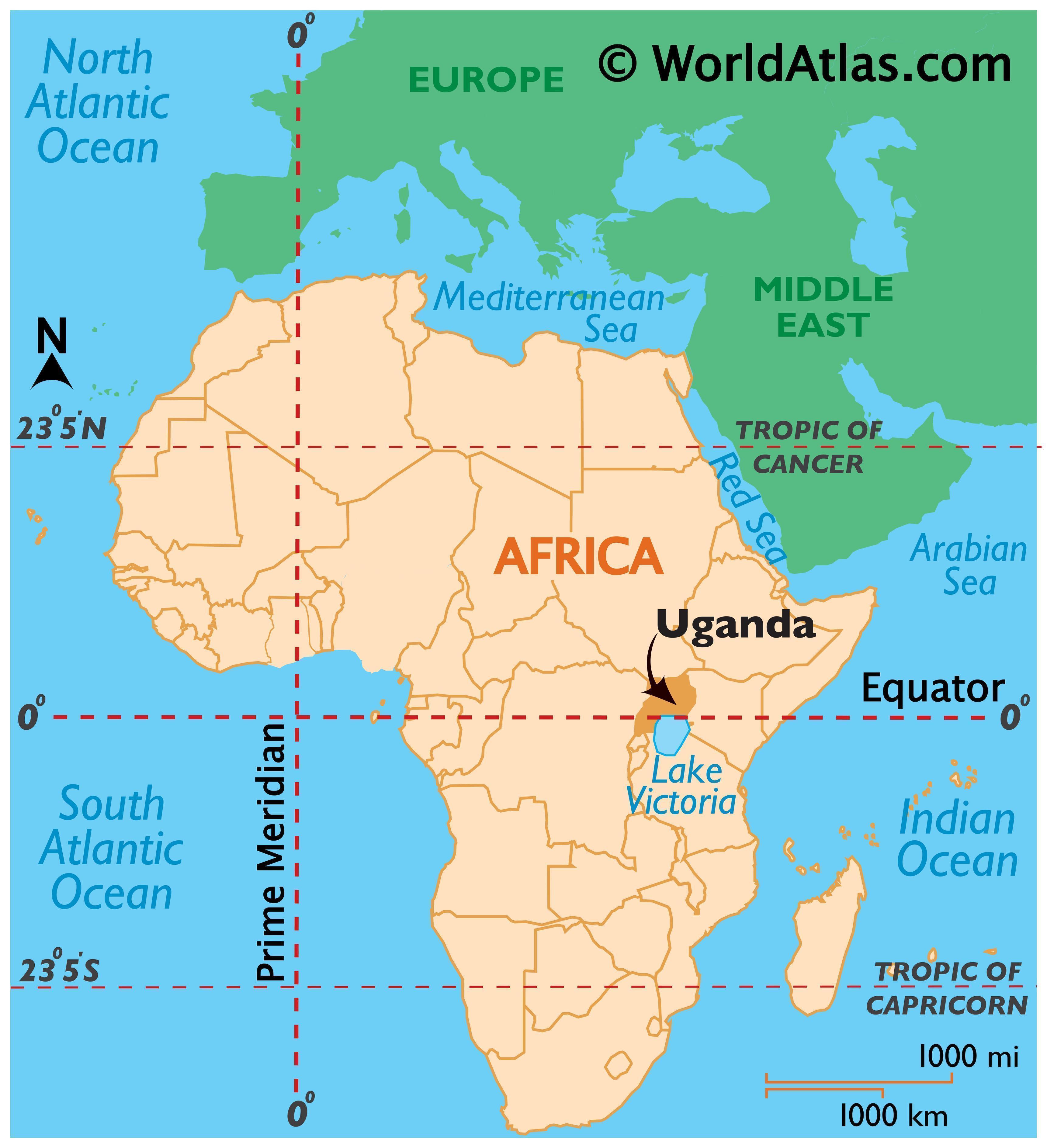Uganda, a landlocked country in East Africa, is a place where nature meets culture in the most breathtaking ways. From the lush rainforests to the majestic wildlife, this country offers an adventure that will leave you breathless. Imagine exploring the habitats of endangered mountain gorillas or cruising along the stunning Nile River. But there's more to Uganda than just its natural beauty. This nation has a rich history, vibrant culture, and warm-hearted people who make it a truly unforgettable destination.
When you think of Africa, your mind might wander to the vast savannahs or bustling cities. But Uganda is different. It’s a place where the unexpected waits around every corner. Whether you're an adrenaline junkie, a wildlife enthusiast, or someone who simply loves discovering new cultures, Uganda has something special for everyone. This country is not just another spot on the map—it's a story waiting to be told.
So why should you care about Uganda? Because it’s one of the most underrated destinations in the world. With its unique blend of biodiversity, historical significance, and cultural richness, Uganda stands out as a must-visit location. In this article, we’ll dive deep into what makes Uganda so special and why it deserves a spot on your travel bucket list. So grab your coffee, sit back, and let’s explore the wonders of Uganda together!
Read also:Billy Joel Delays Shows After Surgery What Fans Need To Know
Table of Contents
- Introduction to Uganda
- Geography and Climate
- Wildlife and Biodiversity
- Culture and Traditions
- Historical Overview
- Tourism in Uganda
- Economy and Development
- Challenges Facing Uganda
- The Future of Uganda
- Conclusion
Introduction to Uganda
Uganda, officially known as the Republic of Uganda, is a landlocked country in East Africa. Bordered by Kenya to the east, South Sudan to the north, the Democratic Republic of the Congo to the west, Rwanda to the southwest, and Tanzania to the south, it’s a country that’s rich in both natural and cultural resources. The Pearl of Africa, as it’s often called, is home to over 45 million people and boasts a diverse landscape that ranges from mountains to plains.
Key Facts About Uganda
- Capital: Kampala
- Population: Approximately 45 million (2023 estimate)
- Official Language: English
- Currency: Ugandan Shilling (UGX)
- Independence Day: October 9, 1962
Uganda’s strategic location in the heart of Africa makes it a hub for regional trade and tourism. Its central position also contributes to its rich biodiversity, making it a paradise for nature lovers. Whether you're exploring the bustling streets of Kampala or trekking through the Bwindi Impenetrable Forest, Uganda offers an experience like no other.
Geography and Climate
Uganda’s geography is nothing short of spectacular. The country is situated on the East African plateau, with altitudes ranging from 620 meters in the Albert Nile Valley to over 5,000 meters in the Rwenzori Mountains. The country is also home to Lake Victoria, the largest tropical lake in the world and the source of the Nile River.
Climate in Uganda
The climate in Uganda is generally tropical, but it varies depending on altitude. The country experiences two rainy seasons, typically from March to May and October to November, with the dry seasons falling in between. However, climate change has started to affect these patterns, leading to unpredictable weather conditions in recent years.
One of the coolest things about Uganda's geography is its diversity. You’ve got everything from the snow-capped peaks of the Rwenzori Mountains to the lush wetlands of the Ssese Islands. This diversity not only supports a wide range of wildlife but also provides stunning landscapes for visitors to enjoy.
Wildlife and Biodiversity
Talking about Uganda without mentioning its incredible wildlife would be like trying to describe a movie without its main characters. The country is home to some of the most diverse ecosystems in the world, supporting a wide range of animal and plant species.
Read also:4hd Hub Movie Your Ultimate Destination For Cinematic Bliss
Top Wildlife Experiences in Uganda
- Gorilla Trekking in Bwindi Impenetrable National Park
- Chimpanzee Tracking in Kibale National Park
- Game Drives in Queen Elizabeth National Park
- Boat Safaris on the Nile River
Uganda is one of the few places in the world where you can encounter the majestic mountain gorillas in their natural habitat. With only about 1,000 of these incredible creatures left in the wild, seeing them up close is a truly once-in-a-lifetime experience. And don’t forget about the chimps! Kibale National Park is famous for its large population of chimpanzees, offering visitors a chance to see our closest relatives in action.
Culture and Traditions
Uganda’s culture is as rich and diverse as its landscape. The country is home to over 50 ethnic groups, each with its own unique traditions, languages, and customs. From the Baganda in the central region to the Karamojong in the northeast, every group contributes to the vibrant tapestry that is Ugandan culture.
Traditional Music and Dance
Music and dance play a significant role in Ugandan culture. Traditional performances often feature drums, flutes, and other indigenous instruments. One of the most famous dances is the Kiganda Dance, performed by the Baganda people. It’s a celebration of life, love, and community, and watching it is an experience you won’t forget.
Food is another important aspect of Ugandan culture. Dishes like matooke (steamed green bananas), luwombo (meat or chicken steamed in banana leaves), and rolex (a local take on the classic omelet roll) are staples in many households. Trying these dishes is a great way to immerse yourself in the local culture.
Historical Overview
Uganda’s history is a fascinating tale of kingdoms, colonialism, and independence. The country has been inhabited for thousands of years, with evidence of early human settlements dating back to the Stone Age. Over time, various kingdoms emerged, including the powerful Buganda Kingdom, which still exists today as a cultural institution.
Colonial Era and Independence
The arrival of European colonizers in the late 19th century marked a turning point in Uganda’s history. The British established a protectorate over the region in 1894, and for the next several decades, Uganda was under colonial rule. Independence came on October 9, 1962, but the country faced numerous challenges in the post-independence era, including political instability and economic difficulties.
Despite these challenges, Uganda has made significant progress in recent years. The country is now one of the fastest-growing economies in Africa, and its people continue to work hard to build a brighter future.
Tourism in Uganda
Tourism is a vital part of Uganda’s economy, contributing significantly to its GDP. The country’s natural beauty and rich cultural heritage make it an attractive destination for travelers from all over the world. Whether you're into adventure, wildlife, or cultural experiences, Uganda has something for everyone.
Why Choose Uganda for Your Next Trip?
Uganda offers a unique blend of adventure and relaxation. You can go on thrilling safaris, hike through stunning national parks, or simply unwind on the shores of Lake Victoria. The country’s friendly people and affordable prices make it an ideal destination for budget-conscious travelers.
Another great thing about Uganda is its accessibility. The country has several international airports, with Entebbe International Airport being the main gateway. From there, it’s easy to reach popular destinations like Bwindi Impenetrable National Park or Murchison Falls National Park.
Economy and Development
Uganda’s economy has shown impressive growth over the past few decades. Agriculture remains the backbone of the economy, with coffee being the country’s main export. However, other sectors such as manufacturing, services, and technology are also gaining traction.
Challenges and Opportunities
Despite its progress, Uganda still faces several challenges, including poverty, unemployment, and infrastructure deficits. However, the government and various organizations are working hard to address these issues and promote sustainable development.
One area of great potential is the tech industry. Uganda has a growing number of tech startups and innovation hubs, which are helping to drive economic growth and create jobs. With the right support and investment, the country could become a major player in the African tech scene.
Challenges Facing Uganda
Like many developing countries, Uganda faces a range of challenges that threaten its progress. Issues such as climate change, political instability, and inequality pose significant obstacles to sustainable development. However, the resilience and determination of the Ugandan people give hope for the future.
Addressing Climate Change
Climate change is one of the biggest challenges facing Uganda today. Rising temperatures and unpredictable rainfall patterns are affecting agriculture, water resources, and biodiversity. The government and international partners are working together to implement strategies to mitigate these impacts and build resilience in vulnerable communities.
Education is another area where Uganda is making strides. Efforts to improve access to quality education for all children are paying off, with more and more young people attending school and pursuing higher education. This investment in human capital is crucial for the country’s long-term development.
The Future of Uganda
Looking ahead, the future of Uganda looks promising. The country has made significant progress in areas such as healthcare, education, and infrastructure, and there’s no reason to believe that this trend won’t continue. With the right policies and investments, Uganda could become a model for sustainable development in Africa.
Investing in Innovation
Innovation is key to unlocking Uganda’s potential. By fostering a culture of creativity and entrepreneurship, the country can harness the talents of its young population to drive growth and development. Whether it’s through tech startups, renewable energy projects, or social enterprises, innovation has the power to transform lives and communities.
Uganda’s natural beauty and cultural richness also offer opportunities for growth in the tourism sector. By promoting sustainable tourism practices and investing in infrastructure, the country can attract more visitors and generate much-needed revenue.
Conclusion
In conclusion, Uganda is a country full of potential and promise. From its stunning landscapes and rich biodiversity to its vibrant culture and resilient people, it’s a place that deserves to be explored and appreciated. While challenges remain, the country’s progress and determination give hope for a brighter future.
So what are you waiting for? Whether you're planning a trip to Uganda or simply want to learn more about this incredible country, there’s no better time than now. Share this article with your friends, leave a comment, and let’s keep the conversation going. Together, we can help Uganda shine on the global stage!


